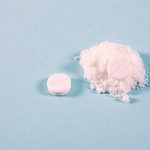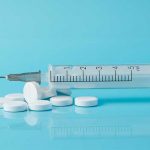Oxycodone is the generic name for Oxycontin, a prescription opioid painkiller. It’s used for pain relief to treat moderate to severe pain and is sometimes combined with other drugs to make painkillers like Percocet.
While many people use it as prescribed by a doctor, others misuse it for recreational purposes.
While it’s not common, people do smoke oxycodone. They may do this because they think it’s safer than snorting or injecting it, but that’s a risky misunderstanding.
Smoking oxycodone can come with some dangerous side effects, including long-term physical and mental health issues.
Smoking Oxycodone
When oxycodone is smoked, the drug is sent straight to the brain and sets off the release of a large amount of dopamine that brings on a euphoric feeling. The drug also attaches itself to the opioid receptors in the brain that can lead to dependence, continued substance abuse, and oxycodone addiction.
Smoking oxycodone involves crushing up the pills into a pipe or vaporizing it and breathing in the vapor.
This method is not as common as others but can be especially dangerous if the extended-release form of the drug is smoked. What is meant to be released over a period of time is rapidly sent to the brain all at once.
Effects Of Smoking Oxycodone
Smoking oxycodone may be perceived as the safer way to abuse that drug, but it is just as dangerous. The side effects of oxycodone range from mild to severe and may include:
- wheezing
- chronic coughing
- diminished lung functioning
- chronic bronchitis
- chronic obstructive pulmonary disease (COPD)
- respiratory depression
- shortness of breath
- itchiness
- drowsiness
- constipation
- low blood pressure
- impaired coordination
Dangers Of Smoking Oxycodone
If you smoke oxycodone in large doses and/or over a long period of time, there are some dangers and long-term side effects that can occur. Some can be treated while others are irreversible or fatal. Some of these dangers include:
- brain damage
- lung infections
- chronic bronchitis
- emphysema
- lung cancer
- heart failure
- lung and respiratory tissue damage
- severe constipation
- severe nausea
- substance use disorder
- overdose
Oxycodone Overdose
Smoking makes it very difficult to know how large a dose of oxycodone you’re taking. Because of this, it can be very easy to overdose on the painkiller.
It’s so easy that, according to the National Institute on Drug Abuse (NIDA), opioids/opiates are involved in 70% of overdose deaths in the US.
There is also an increased risk of overdose if you mix oxycodone with another opioid like fentanyl and hydrocodone, or other illicit drugs. The way they interact can be fatal.
Symptoms of an oxycodone overdose include:
- shallow breathing
- small pupils
- loss of consciousness
- disorientation
- choking
- clammy skin
- weak pulse
- respiratory depression
- hypotension
- coma
Oxycodone Withdrawal Symptoms
While quitting drug use is a good thing, coming off of oxycodone and other opioid prescription drugs can be very difficult. The opioid withdrawal symptoms that can occur when you stop taking the drugs can be uncomfortable and lead to further drug use.
Long-term oxycodone abuse can increase the risk of your bodybuilding up a dependence on the drug. Once that happens, withdrawal symptoms are more likely to occur when you try to quit.
Withdrawal symptoms can include:
- irritability
- agitation
- depression/anxiety
- insomnia
- thoughts of suicide
- inability to concentrate
- diarrhea
- sweating
- body aches
- runny nose
- headaches
- high blood pressure
- irregular heartbeat
Because these withdrawal symptoms are so serious, it’s recommended you go through a detox program with the help of a healthcare professional. This can ensure your symptoms are treated appropriately.
If you or a loved one live with opioid addiction or another form of substance abuse, Northeast Addiction Treatment Center is here to help. Please call our helpline to find out if our outpatient treatment options are right for you.
Sources
Written by
Northeast Addition Editorial Team
©2024 Northeast Addition Center | All Rights Reserved
This page does not provide medical advice.




